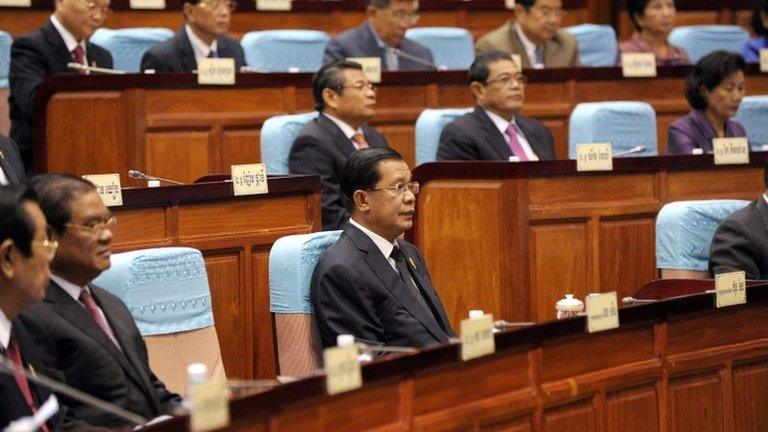US cuts Cambodia aid over democracy concerns
- Published
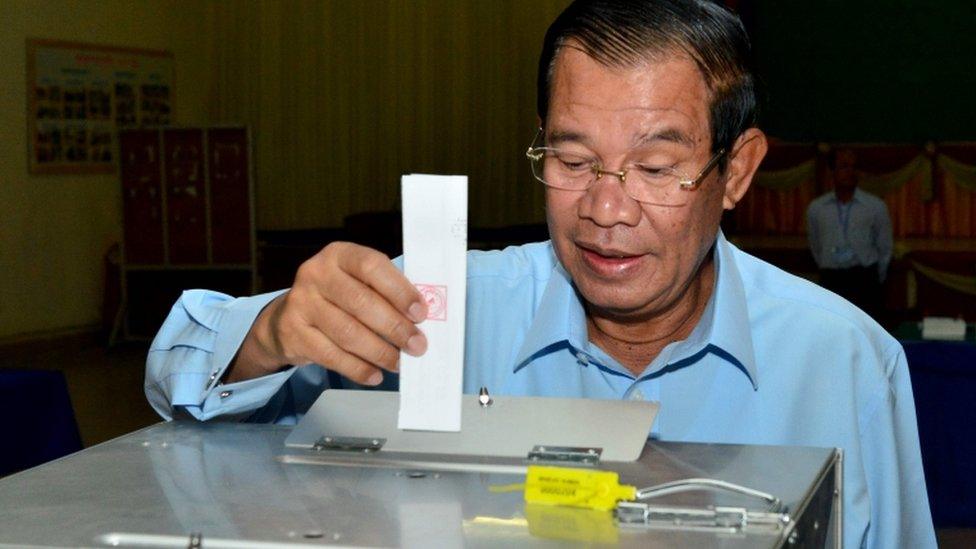
The ruling party of long-term leader Hun Sen won all 58 of the Senate seats up for grabs on Monday
The United States has announced it is suspending some assistance programmes to Cambodia over its concerns with "setbacks to democracy" in the country.
Last year the country's main opposition party was dissolved and its leader was charged with treason.
On Monday, the ruling party said it had won every seat in a Senate election.
The result has been questioned by international groups, and the European Union has already threatened economic sanctions in response.
In a statement on Wednesday, the US government announced the cuts, external saying: "American taxpayer funds are not being used to support anti-democratic behaviour."
The US said it had spent more than $1bn (£720m) supporting Cambodia as a "committed development partner" over the last 25 years, but said recent events had caused "deep concern".
It said the suspension would affect military assistance and some treasury programmes, but it would continue to finance projects supporting the Cambodian people directly, in areas such as health, mine clearance and agriculture.
The aid money being cut amounts to about $8.3m, AFP news agency reports.
The Cambodian government, which has moved away from the West and closer to China in recent years, has yet to respond to the latest announcement.
Mu Sochua, a former deputy leader of the now dissolved Cambodia National Rescue Party (CNRP), welcomed the move.
She told the BBC that Cambodia had become a "one-party, one-man state", and called for all direct foreign aid to the government to be suspended.
The Trump administration had already announced visa restrictions on Cambodian government members in December.
Prime Minister Hun Sen has ruled the country for 33 years and has long been accused of using the courts and security forces to intimidate opponents and crush dissent.
Last September CNRP leader Kem Sokha was charged with treason. He was accused of colluding with the US to conspire against the government.
His party, which posed the only serious political challenge to the government, was dissolved shortly after by the country's top court.
All of their seats were then redistributed to the ruling Cambodian People's Party (CPP) and other smaller opposition groups.
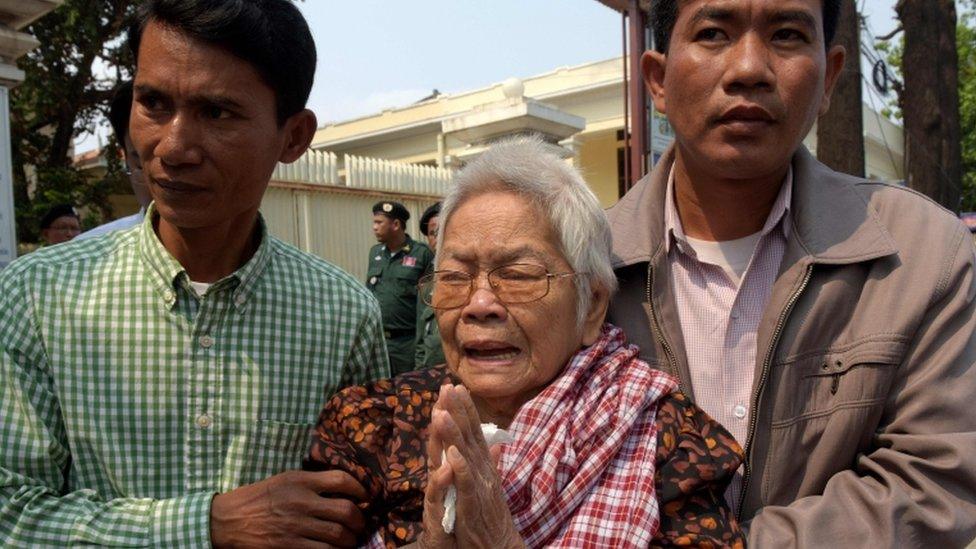
The mother of jailed opposition leader Kem Sokha crying after her son was denied bail on 1 February
The CNRP says that authorities then stripped more than 5,000 of its councillors and lawmakers of voting rights.
On Monday, the CPP said it had won all 58 of the seats up for election in the upper house of parliament.
A general election is due to be held in July, but both the EU and US have refused to fund either vote.
The European Council urged the country to "restore democracy" following the announcement of Monday's results and threatened punitive economic measures.
Separately, the German government announced on Tuesday that it was suspending preferential visas for Cambodian government members.
It cited the "ongoing crackdown" against political opposition, media outlets and non-governmental organisations for the move.
- Published22 August 2023
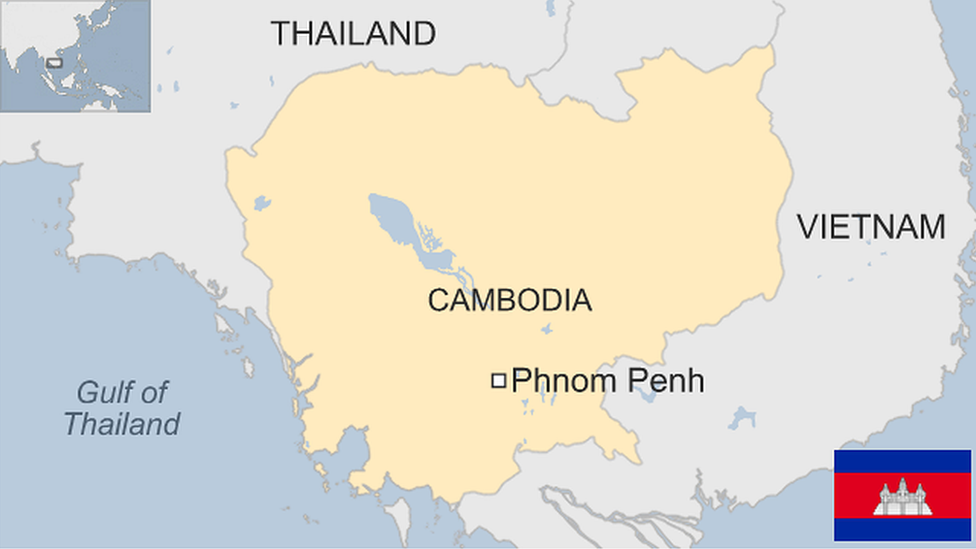
- Published16 November 2017
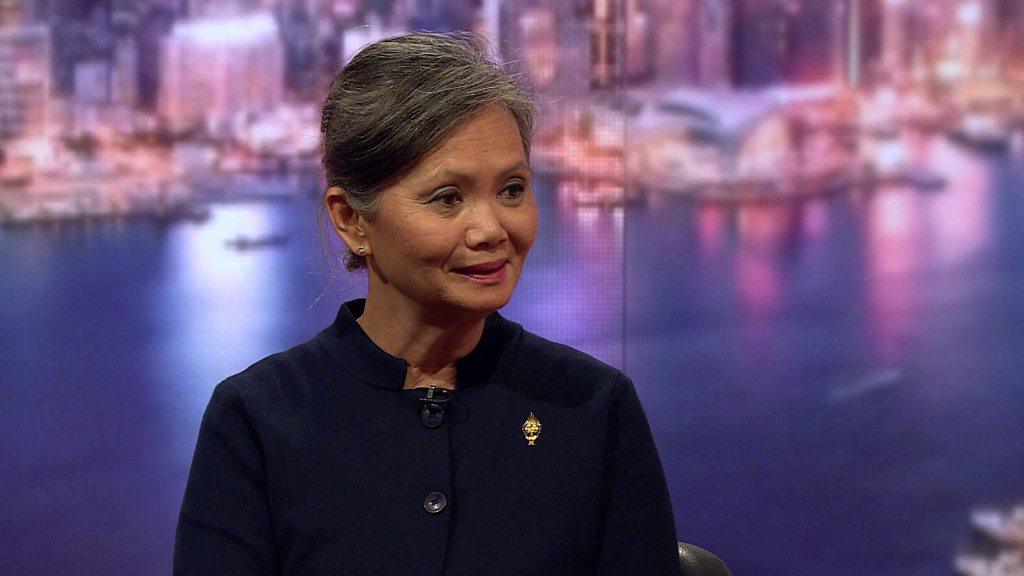
- Published16 November 2017
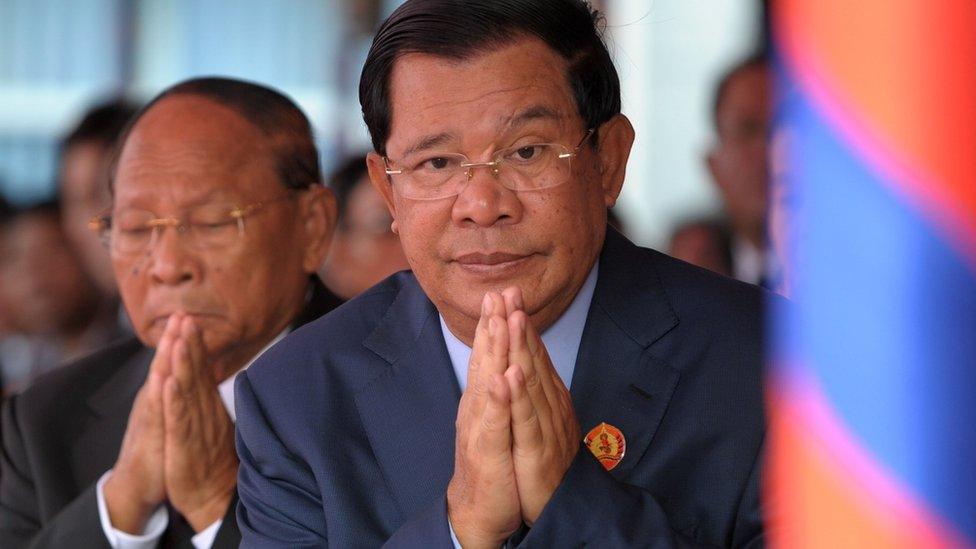
- Published5 September 2017
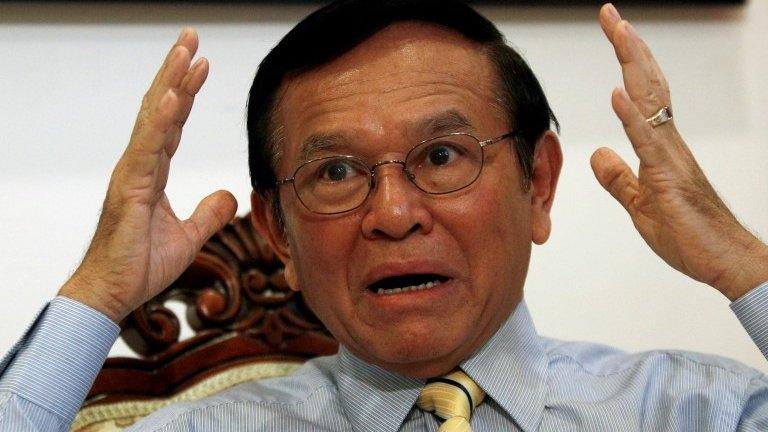
- Published8 February 2018

- Published4 December 2017
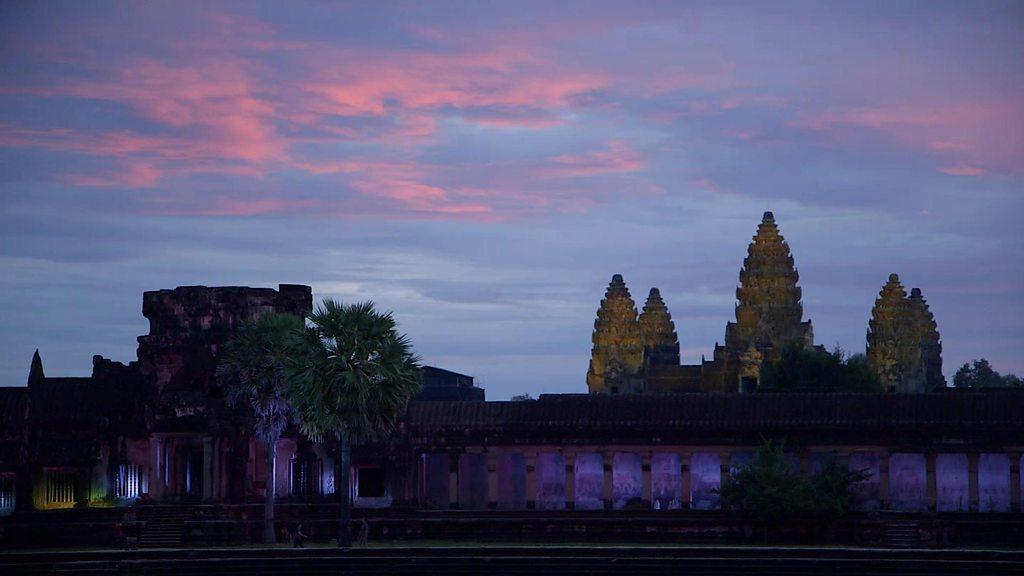
- Published4 December 2017
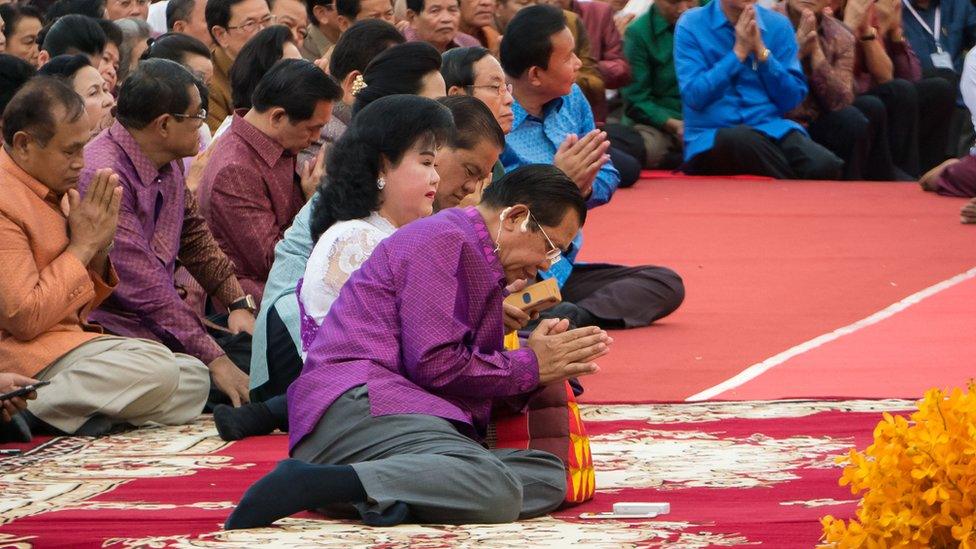
- Published24 September 2013
